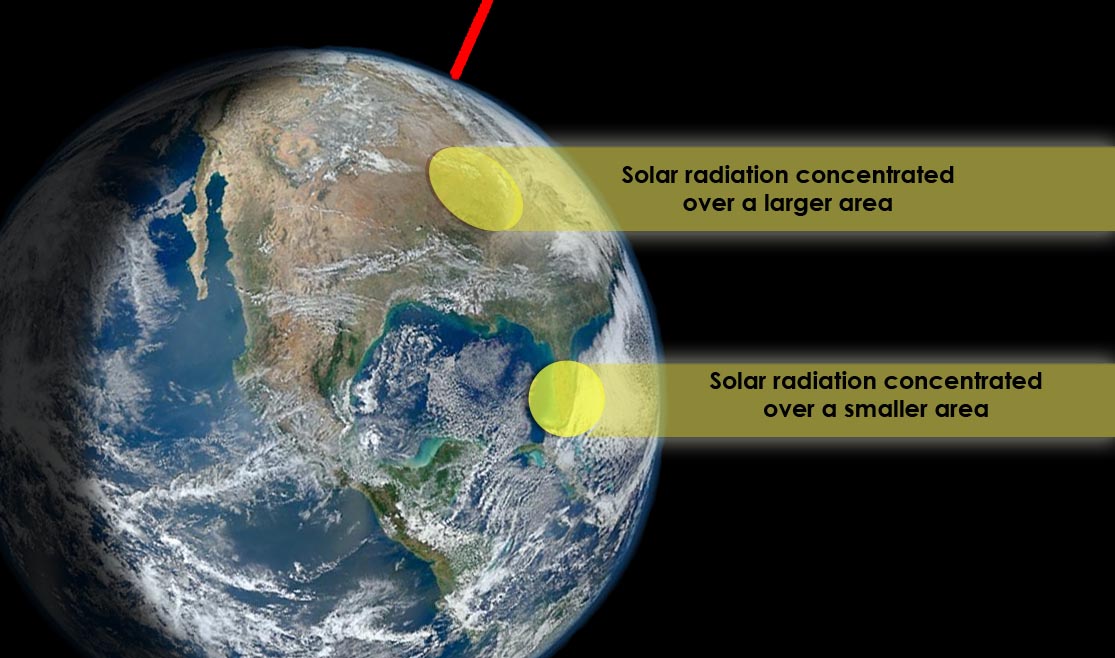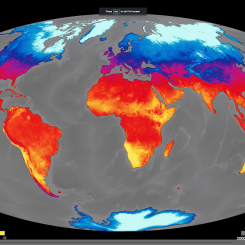Lesson Plans
Introduction: Building Claims from Evidence
Overview
Students will practice the process of making claims, collecting evidence to support claims, and applying scientific reasoning to connect evidence to claims.
Materials Required
Per Student:
- Observation Sheet
- C-E-R Rubric
Procedure
- Set the stage for learning by telling students that they will model the scientific practices of “Constructing explanations and engaging in argument from evidence.”
- Distribute and review the Observation Sheet to the class.
- Explain to students that they will observe the four photos and record evidence from each photo in the Observation Sheet.
- Evidence is your qualitative or quantitative observations which you take from various sources like research, your field work, articles, interviews, etc. It proves the validity of your reasoning for your claim.
- Evidence must be:
- Appropriate: Related to the observed event
- Sufficient: The more observations you have, the stronger your claim
- Observation-based: Documented by qualitative or quantitative means. Ask students to observe Photo 1 and describe their observations (only what they observe...not infer). Possible observations could include the main character/s, setting, weather, etc. Students write down key observations as evidence on the Observation Sheet.
- Evidence must be:
- Evidence is your qualitative or quantitative observations which you take from various sources like research, your field work, articles, interviews, etc. It proves the validity of your reasoning for your claim.
- Review the word “claim."
- A claim is a belief statement that can be argued against other ideas.
- It should describe the relationship between the independent and dependent variables based on evidence.
- Next, students will use the evidence provided and develop a claim about the event.
- Then, review the word "reasoning."
- Reasoning is your logical support of your belief or claim;
- Often reasoning answers the question, “Why?”.
- The reasoning makes the claim stronger – more difficult to debate. This connects your claim and evidence to show how your observations are connected to scientific understanding.
- These sentences usually include “if...then” statements, or uses words like “therefore,” “because,” and “since.”
- Students develop statement/s, based on reasoning, about what happened to the person in the photos linking the evidence.
- As a class, if possible, review pieces of evidence from each photo. With each piece of evidence, ask students whether the evidence supports this claim, logically? If so, why? If not, why not?
- Next, show the video. (Credit: NSF/COSEE-NOW)
- Ask students if they have enough observations to defend their reasoning. Students need more observations to defend their reasoning with confidence.
- Wrap up this activity by discussing with students that scientists use this same practice for learning about the natural world.
Disciplinary Core Ideas:
Crosscutting Concepts:
- Cause and Effect
Science and Engineering Practices:
- Asking Questions and Defining Problems
- Developing and Using Models
- Constructing Explanations and Designing Solutions
- Engaging in Argument from Evidence
Students will practice the process of making claims, collecting evidence to support claims, and applying scientific reasoning to connect evidence to claims.
- Why do scientists gather, classify, sequence, and interpret information?
- Why are making inferences/generalizations and justifying claims important in understanding our world?
- How can you use evidence to justify claims?
By the 8th grade, students are expected to construct and present oral and written arguments supported by empirical evidence and reasoning to support or refute an explanation for a phenomenon.
The study of science and engineering should produce a sense of the process of argument necessary for advancing and defending a new idea or an explanation of a phenomenon and the norms for conducting such arguments. In that spirit, students should argue for the explanations they construct, defend their interpretations of the associated data, and advocate for the designs they propose. (NRC Framework, 2012, p. 73)
Argumentation is a process for reaching agreements about explanations and design solutions. In science, reasoning and argument based on evidence are essential in identifying the best explanation for a natural phenomenon. In engineering, reasoning and argument are needed to identify the best solution to a design problem. Student engagement in scientific argumentation is critical if students are to understand the culture in which scientists live, and how to apply science and engineering for the benefit of society. As such, argument is a process based on evidence and reasoning that leads to explanations acceptable by the scientific community and design solutions acceptable by the engineering community.
Argument in science goes beyond reaching agreements in explanations and design solutions. Whether investigating a phenomenon, testing a design, or constructing a model to provide a mechanism for an explanation, students are expected to use argumentation to listen to, compare, and evaluate competing ideas and methods based on their merits. Scientists and engineers engage in argumentation when investigating a phenomenon, testing a design solution, resolving questions about measurements, building data models, and using evidence to evaluate claims.
Credit: 2013 NGSS
Grades 3-5: Engaging in argument from evidence in 3–5 builds on K–2 experiences and progresses to critiquing the scientific explanations or solutions proposed by peers by citing relevant evidence about the natural and designed world(s).
- Compare and refine arguments based on an evaluation of the evidence presented.
- Distinguish among facts, reasoned judgment based on research findings, and speculation in an explanation.
- Respectfully provide and receive criticism from peers about a proposed procedure, explanation, or model by citing relevant evidence and posing specific questions.
- Construct and/or support an argument with evidence, data, and/or a model.
- Use data to evaluate claims about cause and effect. Make a claim about the merit of a solution to a problem by citing relevant evidence about how it meets the criteria and constraints of the problem.
Common Core State Standards ELA Standards:
- CCSS.ELA-LITERACY.RI.6.7: Integrate information presented in different media or formats (e.g., visually, quantitatively) as well as in words to develop a coherent understanding of a topic or issue.
- CCSS.ELA-LITERACY.RI.6.8: Trace and evaluate the argument and specific claims in a text, distinguishing claims that are supported by reasons and evidence from claims that are not.
- CCSS.ELA-LITERACY.RI.7.8: Trace and evaluate the argument and specific claims in a text, assessing whether the reasoning is sound and the evidence is relevant and sufficient to support the claims.
- CCSS.ELA-LITERACY.RI.8.8 : Delineate and evaluate the argument and specific claims in a text, assessing whether the reasoning is sound and the evidence is relevant and sufficient; recognize when irrelevant evidence is introduced.
This lesson does not directly align with phenomena-based learning by addressing disciplinary core ideas but rather the scientific practice of engaging in argument from evidence which NASA scientists must perform daily. Essential to the nature of science, scientific knowledge is reliant upon a process of reasoning from evidence. This requires scientists to justify their scientific claim about the natural world, which in turn, other scientists attempt to refute by identifying weaknesses and limitations within the research. NASA is no stranger to having to justify claims associated with contentious topics like global climate, severe weather, or sea level rise. NASA scientists must argue or defend their claims through data interpretation, experimental designs, and data analysis. This is commonly found in the form of defending claims using evidence and reasoning, defending climate models using evidence, or reviewing and critiquing the claims of other scientists by looking for sufficient and appropriate evidence of claims.
- General Scientist - A scientist is a person that works in a specific field to acquire or uncover knowledge related to the natural world.
- Engineer - An engineer is a person that applies scientific knowledge, mathematics, and imagination to develop real-life solutions to technical problems.
- Standalone Lesson (no technology required)
- Internet Required



